
How we see The Bishop Strachan School
The 50-page review of The Bishop Strachan School is part of our series of in-depth accounts of Canada's leading private schools. It provides a unique and objective perspective on the school's academics, programs, culture, and community.
Read our in-depth reviewCompare with:
How The Bishop Strachan School sees itself
"The Bishop Strachan School is a leading independent JK-Grade 12 day and boarding school for girls. Our rigorous, inquiry-based curriculum prepares students for university and beyond. Our 7.5-acre campus includes STEAM-focused learning spaces, a Centre for Arts and Design, multimedia and film labs, and athletics facilities. As an inclusive girls’ school, we foster a sense of belonging by affirming our diverse community. For over 150 years, BSS has inspired students to be fearless and educated them to be leaders."
"The Signature of a BSS Girl is a set of seven personal attributes that are nurtured and taught- a growth mindset, ethical citizenship, curiosity, self-awareness, grit, voice and leadership. Backed by intensive research on girls’ psychology, wellness, character development, and leadership models, we believe these attributes help each student realize their full potential. From academics to sports, music, leadership and service, our program is designed to encourage girls explore their interests."
"Families experience a warm and welcoming community that celebrates students’ interests, passions, and learning styles. Faculty nurture each student’s curiosity, encouraging them to explore the world around them with confidence. Girls experience both academic rigour and a well-rounded education because of our balanced approach to learning and focus on student well-being. We foster a caring environment that embraces diversity, equity, inclusion, and belonging in our classrooms and beyond."
"At BSS, we are a community. Parents are seen as partners in their children’s academic journey. We balance the needs of our students between academic learning and co-curricular activities which encourage students to explore their interests and abilities. Our community is diverse in all aspects- our Boarding community boasts 70 students from around the world. When our students graduate, they join a global community of BSS alumnae who represent an incredible breadth of accomplishments."
"Financial assistance is a cornerstone of our commitment to providing inclusive and accessible education. It ensures that more girls can develop their voice, curiosity and leadership skills. During the 2021/22 school year, we awarded over $2 million in financial assistance to 75 families, making BSS the school with the highest amount available of any girl's school in Canada. Our goal is to ensure that cost is not a barrier for exceptional students who want to access a BSS education."



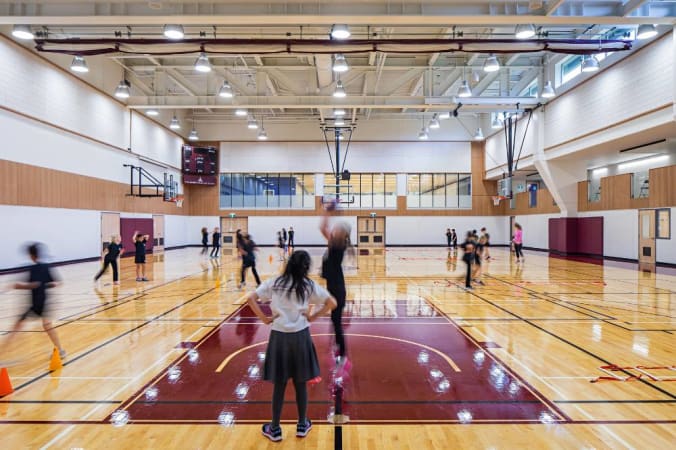




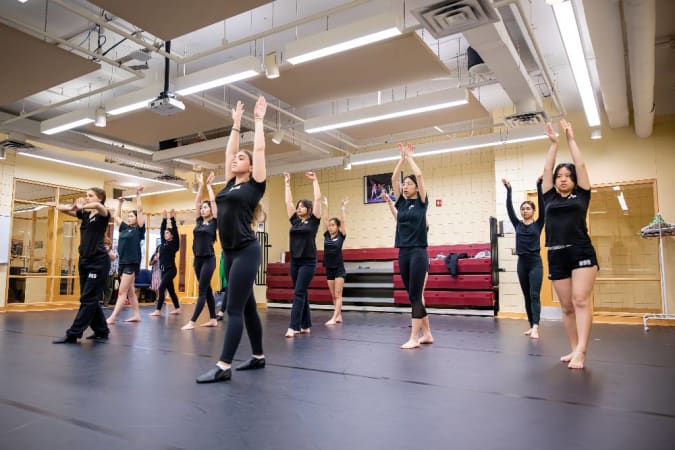

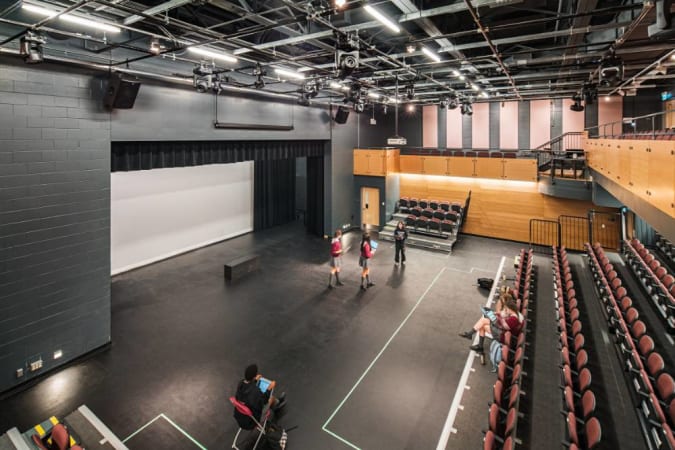



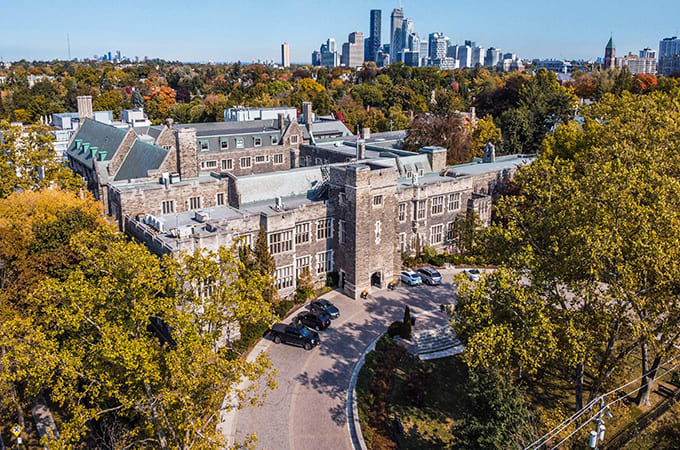
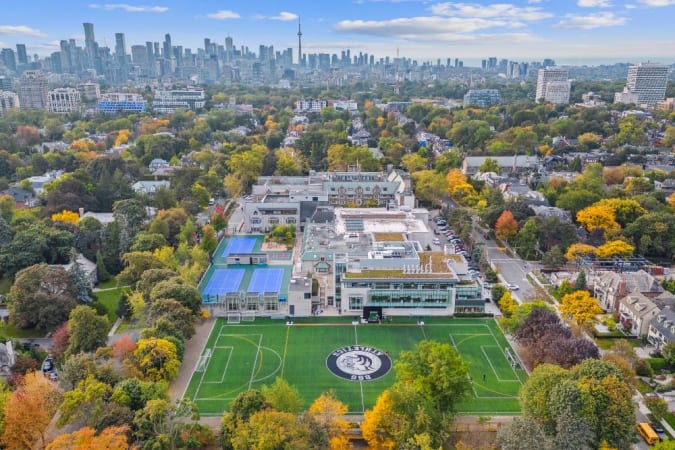
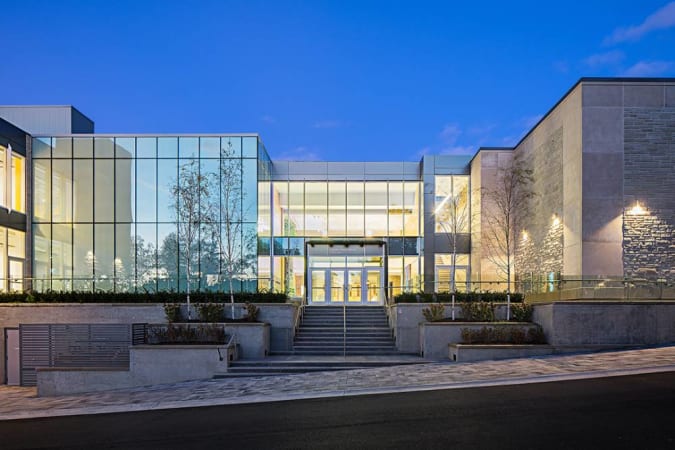



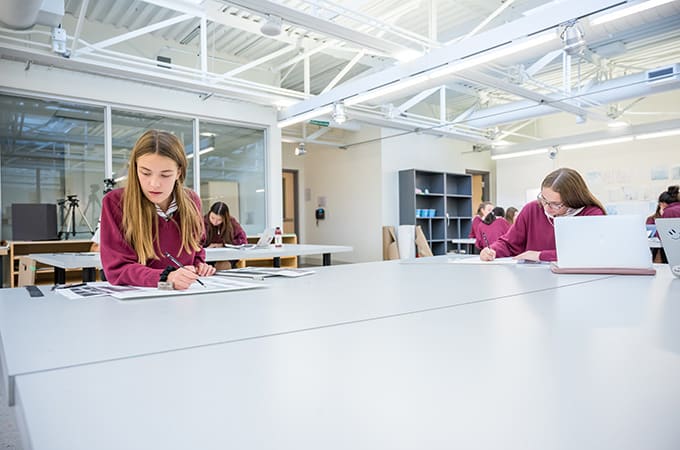

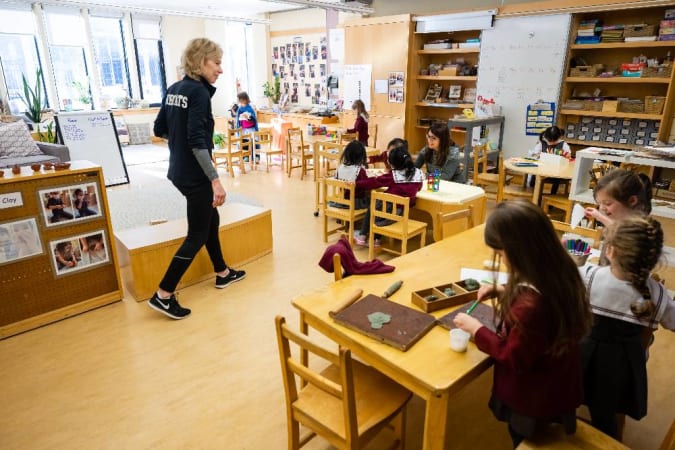



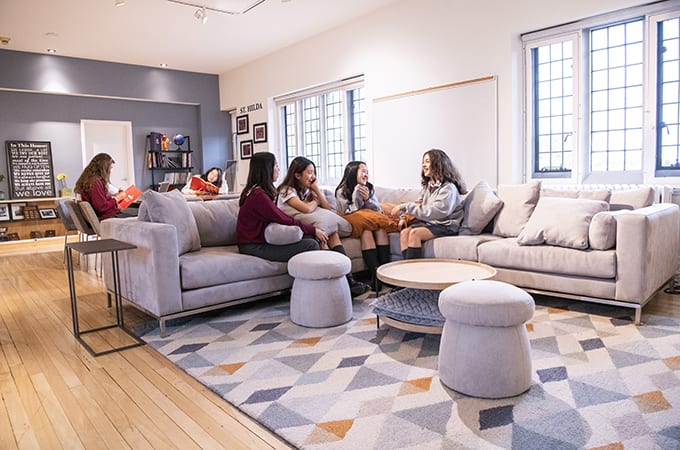
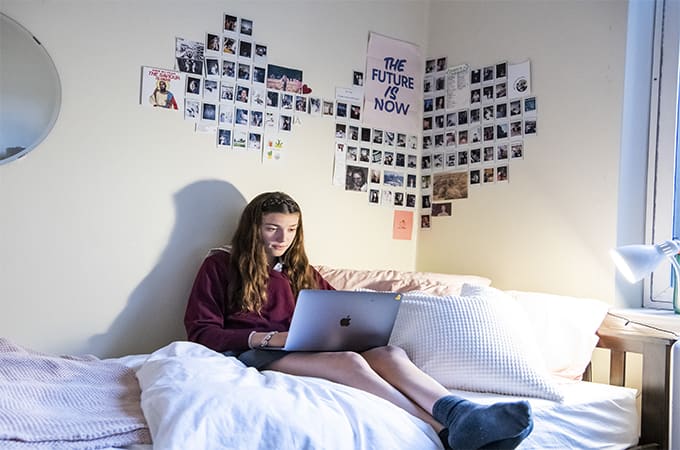




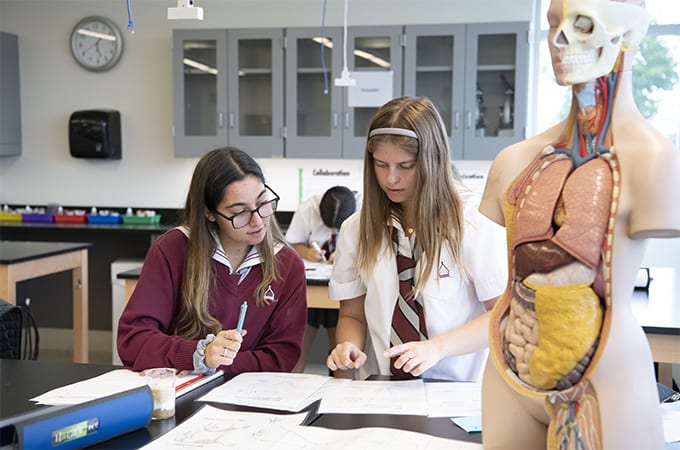
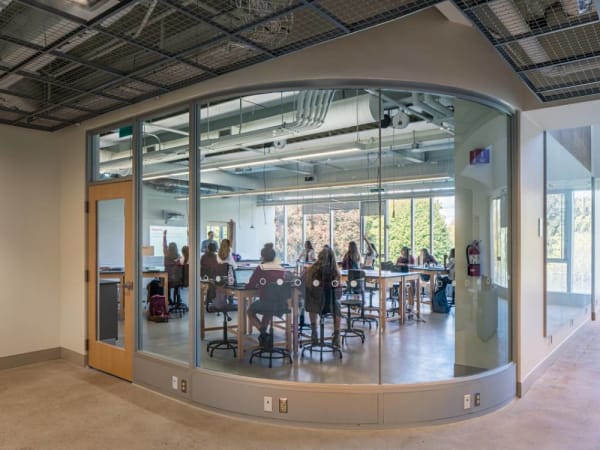
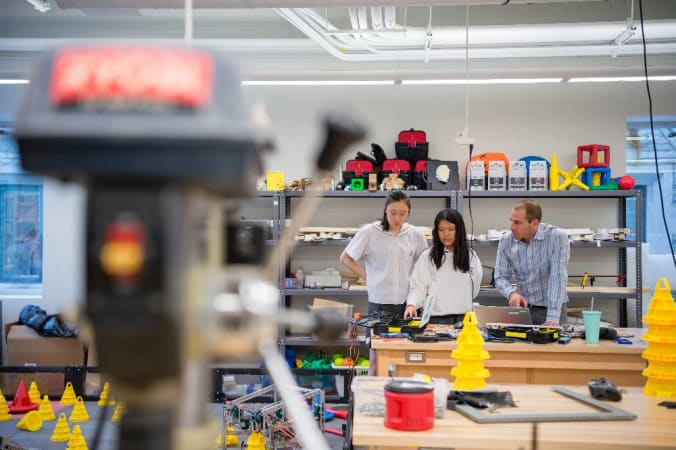











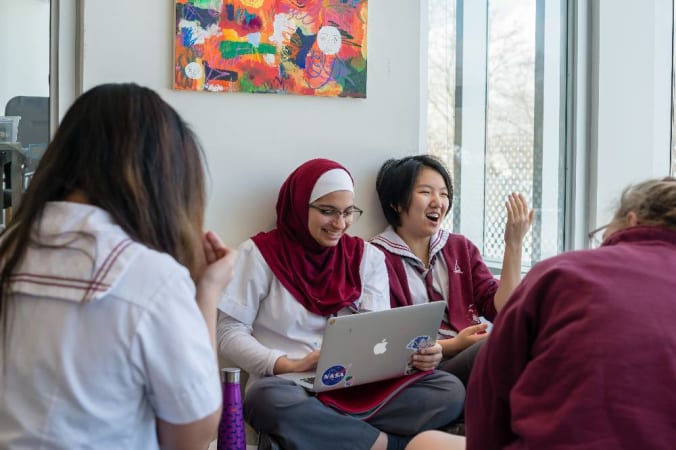





How people from the school’s community see The Bishop Strachan School
Top-down influence on the school’s direction and tone

Dr. Angela Terpstra, Head of School
Angela Terpstra was principal of the Senior School for eleven years before becoming Head of School, and her goals for the girls of BSS reach beyond academic success. She places immense priority on cultivating compassionate, ethical citizens who exhibit kindness and generosity and value differences in religion, race, opinions, and ideas. She strives to engage girls with the outside world, and feels strongly that topical issues in the news have a very important place in the classrooms of BSS. Angela is inspired and activated by the idea of “private schools with public purpose,” and she strives to use the resources available in an independent school setting to lead the way in forward-thinking education for girls that teachers the world over can observe and learn from.
Most big schools provide your extroverted child with plenty of social opportunities and the ability to interact with different peer groups with a wide range of personalities, interests, values, etc. A larger student population and more extracurriculars—including activities like team sports, arts programs, and debate—will give them a broader scope of opportunities to participate in events that scratch their interpersonal itch. “This may also give them the opportunity to hone certain skills,” say Ann and Karen Wolff of Wolff Educational Services. “For instance, they might run for student council to develop leadership and public speaking skills and learn to be a voice for other students.”
Through extensive group work, projects, and activities, Reggio Emilia schools provide the kind of social and collaborative learning environment many extroverts crave. Since it’s believed children learn well through social interaction, they’re given plenty of time to interact, listen to each other, ask and answer questions, and work on their communication skills. This can nurture their curiosity and imagination, improve their social skills, and enable them to form close and fulfilling friendships. While most Reggio Emilia schools also give kids quite a bit of unstructured social time, make sure you ask about this.
At a boarding school, your extroverted child will likely enjoy seeking out and interacting with peer groups from different backgrounds, away from home. In fact, studying and living with other kids for an extended period of time, as many alumni tell us, provides the unique opportunity to form close relationships that can last well beyond the school years. Many boarding schools also have large student populations and more extracurriculars—including activities like student council, team sports, and arts programs—which will give your outgoing child a broader scope of opportunities to feed off the energy of others, and possibly even become a leader, in a dynamic environment.
Keep in mind, though, “Being an extrovert can be a catalyst for getting involved in lots of activities, which can sometimes be hard to manage,” says Joanne Foster, Toronto-based education consultant and author of ABCs of Raising Smarter Kids. “For instance, a particularly extroverted child may try to end up juggling too many people and activities. While they still may thrive at a boarding school, it helps to know your child and how much social interaction they can handle comfortably.”
Make sure any prospective school, no matter what size, provides the right social environment to help your child feel at home, make friends, and develop confidence. This is especially important at big schools, which are sometimes more socially overwhelming and challenging for an introvert to find their bearings in. Of course, “Because larger schools usually have a more diverse student population, introverted kids are more likely to find a small group of people like them, a peer group they can relate to and find acceptance from,” says Dona Matthews, Toronto-based education consultant and co-author (with Joanne Foster) of Beyond Intelligence.
Bigger schools often have a broader scope of extracurricular activities, which is another way to help your child meet the right group of friends. “This may also give them the opportunity to develop certain skills,” say Ann and Karen Wolff of Wolff Educational Services. “For instance, they might run for student council to develop leadership and public speaking skills and learn to be a voice for other students. Remember, though, each child is different—so what works for one may not work for another.”
In Reggio Emilia schools, teachers consider each child’s relationship to one another and aim to promote positive connections between them, a blessing for introverted kids (as it is for extroverted kids). The warm, community feel of the Reggio classroom—which is set up to promote lots of interaction—can enable your child to feel at home, connect with classmates, and overcome their shyness. Given the social and dynamic environment of the Reggio classroom, make sure your child will get enough time on their own, in and out of class, to replenish their energy and psychological resources.
At a boarding school, your introverted child will be more motivated (and virtually compelled) to seek out and interact with different peer groups. Away from home and in a new environment, they’re more likely to take the initiative to form close friendships, which can boost their independence and confidence, and help them develop critical social skills.
"Consider, though, whether your child will be comfortable and confident while living away from home, and while having to navigate the various, and sometimes unforeseen social-emotional experiences, alongside the academic challenges,” says Joanne Foster, education expert and author of ABCs of Raising Smarter Kids. Finally, ensure support systems are in place to promote their social and emotional development, and that your child is willing and prepared to take advantage of them. Your child will often need to advocate for themselves at a boarding school, and they’ll need confidence and perseverance to do so.
THE OUR KIDS REPORT: The Bishop Strachan School
Next steps to continue your research:
Continue researching The Bishop Strachan School with OurKids.net, or visit school website.